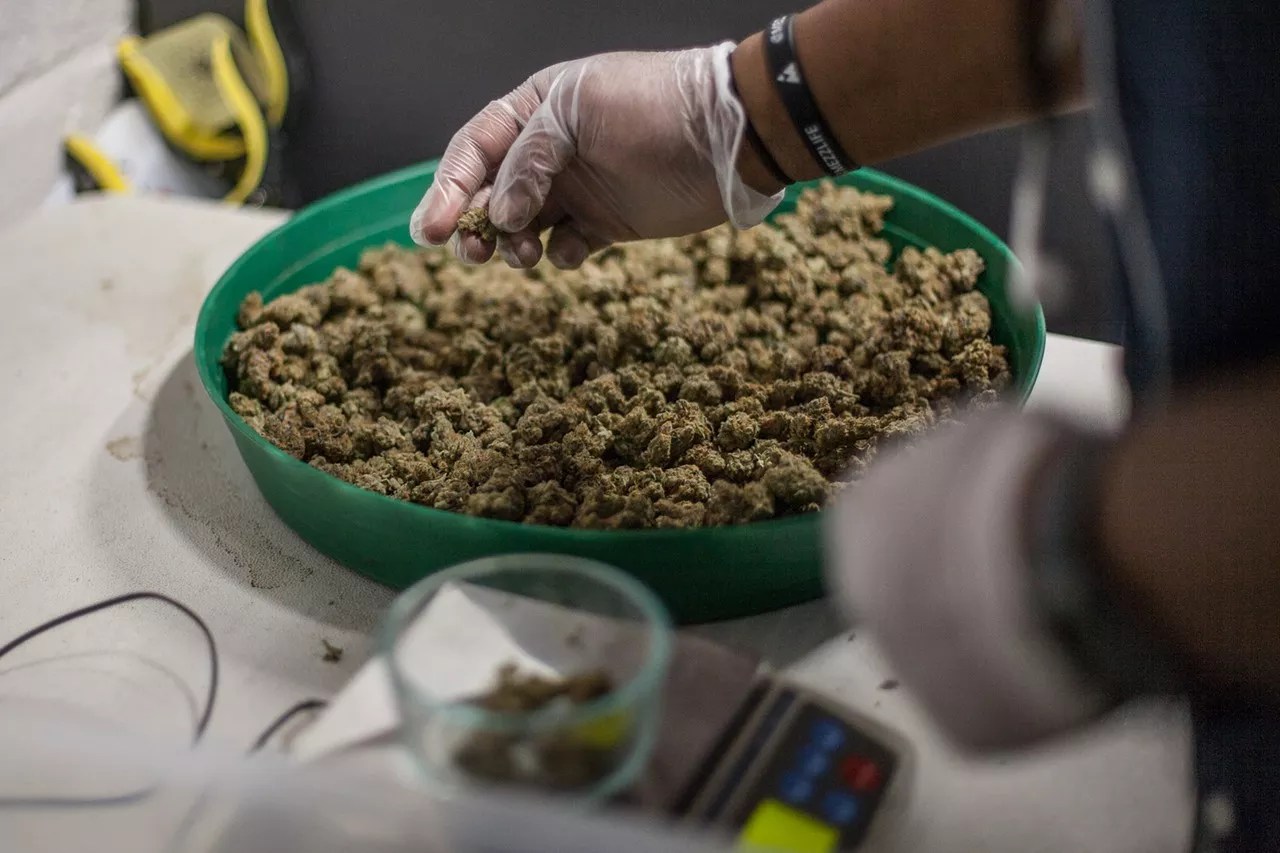
Jacqueline Collins

Audio By Carbonatix
Should social equity policy be used by already existing millionaires in the cannabis industry?
By design, in order to decrease the effects of the failed War on Drugs and empower those most impacted, legislation must exist that clearly defines the terms. As it currently stands, the qualifying criteria for social equity in Colorado cannabis contains vague objectives that are causing more obstruction to the movement than progress.
To be eligible for a social equity license in Denver, a business must be at least 51 percent owned by someone designated under the state’s marijuana social equity program. That program makes you prove at least one of the following: that you or your family was arrested on cannabis charges, you earn less than 50 percent of the state median income, or you come from a community designated as a low-economic opportunity zone.
The social equity program in Denver is intended to create a diverse market through increasing minority ownership, specifically the ownership of those impacted by the War on Drugs. However, what is taking place is an exploitation of the arrest criteria by millionaires who are currently operating and heavily resourced.
Many existing retailers are using the arrest criteria as a basis for social equity licenses, and are being issued cannabis retail licenses en masse. For potential minority-owned businesses in the cannabis space, this creates an additional barrier to entry, not including other obstacles like funding, access and legal support. But for existing operators connected to hugely funded conglomerates, it gives them an additional advantage.
To outline the disparity further, 80 percent of the state’s social equity retail dispensary licenses issued so far have gone to existing industry retailers such as Kind Love, Star Buds and Yuma Way. This directly counters the goal of creating a diverse and equitable marketplace.
Multi-store owners are monopolizing a licensing resource because they have the capital, clout and currency to completely dominate the market, using a program meant to decrease harm. It’s an outrage being done in the name of a movement that’s not even currently sufficient for those it’s meant to reach.
Everyone knows the license process is long and arduous, even for experts in the space. To make matters more complicated, the social equity retail store licenses in Denver that have been issued or are in the process of issuance are being marked for existing industry retailers. Yes, you read that right, of the licenses set for issuance, 66 percent are being issued to already existing operators.*
Even with its shortcomings, Denver is the only city with a robust social equity program. In Denver, all new license types – delivery, retail stores, hospitality and cultivation, with the exception of research and development and medical stores – are allowed for social equity applicants until 2027, while delivery licenses are reserved for social equity applicants until 2024.
Social equity license holders have only a few options available to create a stake in the industry, and delivery/transport contracts with retailers is one of them. In Denver, less than 9 percent of dispensaries are actively participating in delivery. In Aurora, delivery is available at 70 percent of stores, yet there is only one store, Terrapin Care Station, that actually uses a social equity transporter, High Demand Delivery. This is relevant because 94 percent of stores in Aurora also have locations in Denver, and only one of those stores also delivers in Denver.
This means exactly what you think it means: Big operators are taking advantage of the social equity criteria loophole – being issued licenses and not utilizing social equity businesses in their operational day-to-day.
The outrage continues, and that is why we must close the loophole. A person being low-income does not mean they have been negatively impacted by cannabis prohibition. Simply being arrested, with no conviction and certainly with no felony, also does not imply negative impact. We suggest all who care about the social equity license program advocate for the following changes:
The Colorado social equity license program only requires one criteria for qualification, and that is the ultimate change necessary. We believe the most impactful changes made to the rules should include removing arrest as a stand-alone criteria, requiring more than one criteria for low-income candidates, and not allowing existing industry retail and medical store licensees with more than two stores to obtain new retail and medical licenses under the social equity state designation.
If we are to decrease the impact of the War on Drugs, we must close the gap that allows well-funded legacy holders to monopolize the industry.

Sarah Woodson
*Editor’s note: the Denver Department of Excise and Licenses disputed the 66 percent claim, saying that there is no official definition for what constitutes an existing operator in Colorado’s marijuana industry, and that it couldn’t verify who was an existing marijuana operator outside of Denver; the Colorado Marijuana Enforcement Division, which regulates state-issued marijuana licenses, said it couldn’t verify any social equity licensee figures at this time.
Sarah Woodson is the owner of the Color of Cannabis, a marijuana industry group that pushes for restorative economic and criminal justice to communities negatively impacted by the War on Drugs. She is also the owner of marijuana delivery service High Demand Delivery and marijuana hospitality business Kush & Canvases.
Westword.com frequently publishes op-eds and essays on matters of interest to the community; the opinions are those of the authors, not Westword. Have one you’d like to submit? Send it to editorial@westword.com, where you can also comment on this op-ed.